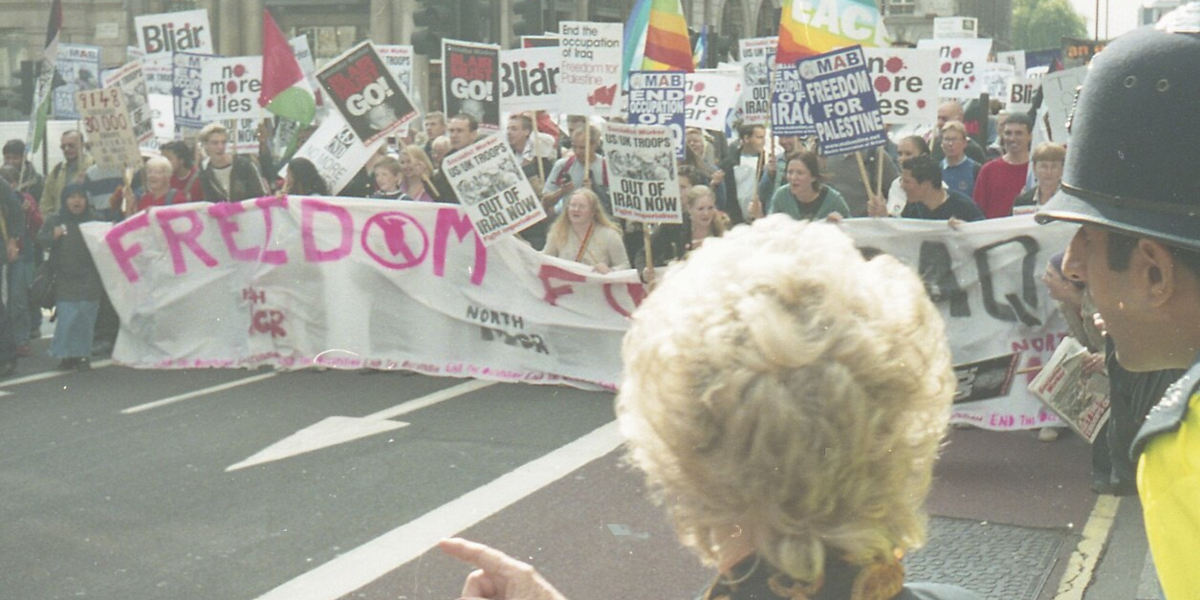The subsequent Terrorism Act 2000 defined a terrorist as someone prepared to use violence to create a serious risk to the health and safety of the public in pursuit of a ‘political, religious or ideological point’. It came as some surprise, therefore, to Isabelle Ellis-Cockcroft (age 11) when she was served with a notice under section 44 (S44) of that act earlier this year. Isabelle has, of yet, no clear political, religious or ideological beliefs, although she is very fond of animals. Nevertheless, the constabulary thought she was a potential terrorist and used their S44 powers to stop and search her and her bicycle.
Isabelle’s ‘crime’ was to have gone with her father Dave to a peace protest outside the Fairford RAF base in Gloucestershire. The police also served her dad with an S44 notice. He is a well-known figure in nearby Stroud, where he served as a town councillor and sat on the local closed-circuit television trust. Terrorists do not usually help the police set up surveillance cameras.
At the time of the Terrorism Act’s passage the home secretary had given categorical assurances that its measures, especially the S44 stop and search powers, would not threaten the right to peaceful protest. We now know that that assurance has been abused. S44 orders were routinely used at Fairford, and for the past two years the whole of Greater London has been designated a special security area within which the police are free to stop and search as they wish.
Liberty is currently involved in a legal action against the Home Office and the Metropolitan Police over the use of random stop and search powers during protests against the DSEi arms fair in Docklands in September. The case will be heard in the Court of Appeal early in the new year, and Liberty will do everything in its power to defend the right to protest free of intimidation.
Liberty was set up to protect that right just under 70 years ago, at a time when Britain was torn with internal strife and was witnessing the birth of Oswald Mosley’s blackshirt battalions. We vigorously defended the right of anti-fascist demonstrators when Mosley had significant establishment support. When war broke out and opinion turned violently against the Mosleyites, we defended their right to free speech.
Today we are acting on behalf of two of the demonstrators stopped and searched for protesting against the arms trade. This is not because we endorse their political views; that, for us, is not the issue. The anti-terrorist powers used against them could equally be used against pro-hunting activists or supporters of the fur trade. We would defend them as well.
Isabelle Ellis-Cockcroft is 12 now and still in the process of working out her political, philosophical and religious affiliations. But she’s old enough to know that there is a world of difference between, in her words, ‘someone like me and a terrorist’. If she can tell the difference then so should serving police officers and the political masters who granted them the right to use S44 powers.
At an earlier stage in our DSEi court action Lord Justice Brooke and Mr Justice Maurice Kay observed ‘The Metropolitan Police would do well to review their training and briefing and the language for the standard forms they use for S44 stop-searches if they wish to avoid similar challenges in the future’.
It would help the police conduct that review if the current home secretary would now make it clear that he stands by that categorical assurance given by Straw that the legislation must not be used to curtail dissent. Protesters are not criminals. They are not terrorist suspects. They are citizens exercising their democratic right to protest. It’s time for David Blunkett to declare loudly and publicly that that’s his view as well.










